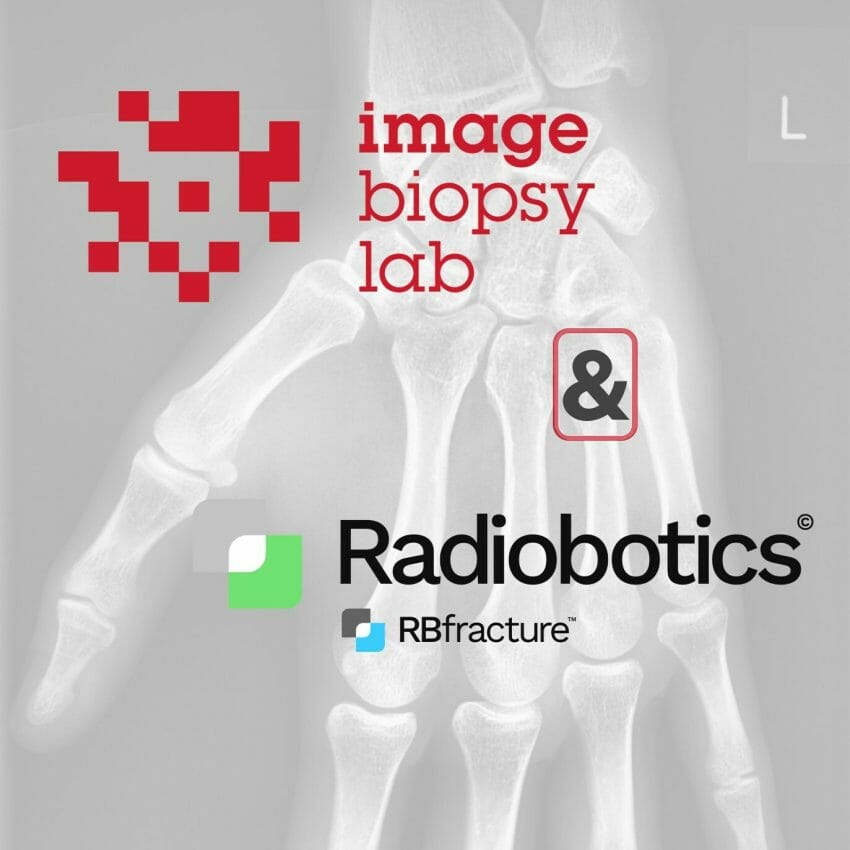ImageBiopsy Lab (Vienna, Austria) and Radiobotics (Copenhagen, Denmark) have teamed up to advance the use of Artificial-Intelligence (AI) supported disease diagnostics for musculoskeletal (MSK), orthopaedic, and trauma use-cases in the DACH region.
Globally, musculoskeletal conditions affect a larger population than circulatory or respiratory disorders. Despite this, diagnostic methods often remain rooted in outdated practices, relying on manual interpretation of X-rays and MRI images. These subjective and time-intensive techniques lack standardisation and depend on practitioner expertise.
Despite a growing number of MSK-specific solutions, users lack a holistic answer for diverse diagnostic needs. With their collaboration ImageBiopsy Lab and Radiobotics (both with MDR and FDA clearances) will merge their expertise and provide a single, comprehensive solution for MSK imaging, encompassing measurement, scoring, and fracture detection workflow.
Dr. Richard Ljuhar, CEO and Co-Founder of ImageBiopsy Lab, explains, “Before even considering the use of AI, it’s crucial to grasp physicians’ diagnostic workflow and needs. For this purpose we’ve closely collaborated with leading MSK radiologists, orthopaedics, and traumatologists over the past years. We’re committed to revolutionizing the entire MSK diagnostic value chain for practitioners, patients, and healthcare systems.
We see Radiobotics as the logical partner to offer best in class solutions for MSK conditions diagnostics, from measurements and scoring to fracture detection. Our collaboration marks the next AI-powered workflow integration phase.
Mads Jarner, CEO and Co-founder of Radiobotics, notes, “As MSK AI solutions gain traction in clinical workflows, providing clinics with integrated and comprehensive options becomes vital. We’re thrilled to collaborate with ImageBiopsy Lab to facilitate access to our market-leading solutions. Leveraging ImageBiopsy Lab’s expertise and network in German-speaking regions, we’re excited to introduce our RBfracture™ fracture detection solution in this area initially, with potential expansion to other regions.


